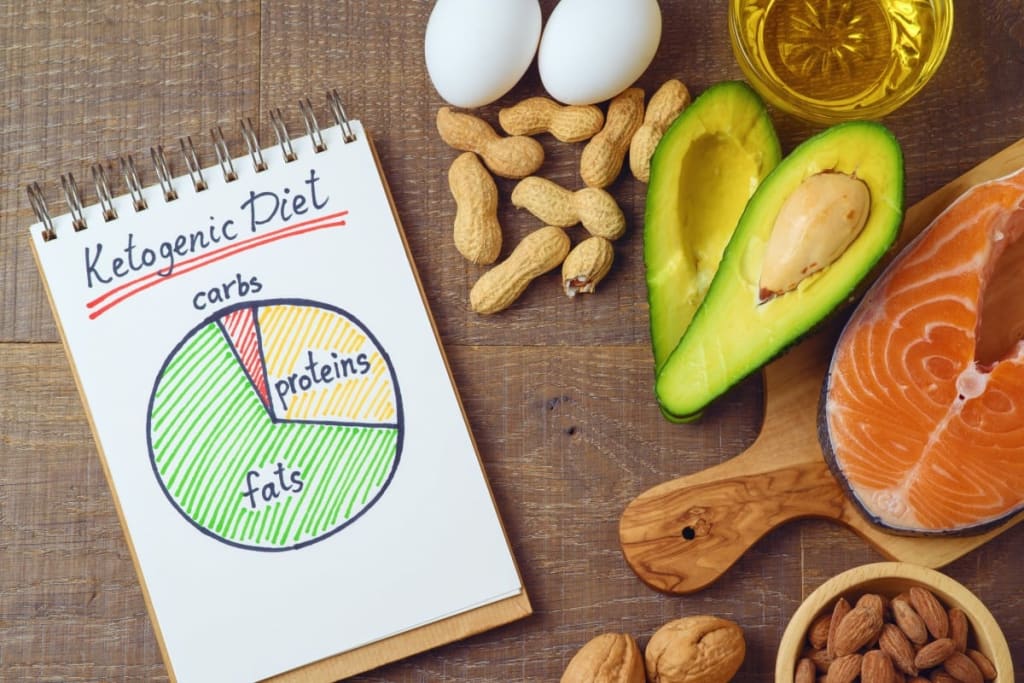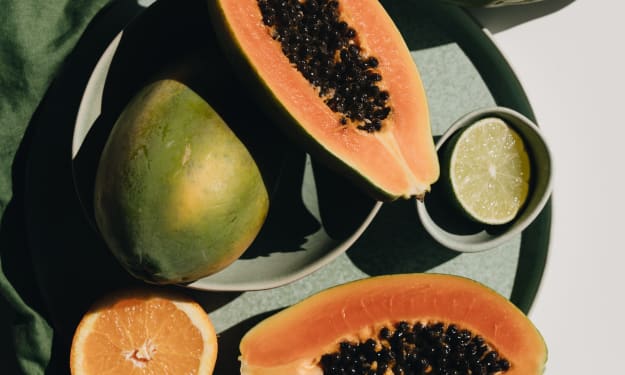Ketogenic Diet 101
Read this article to learn more

To check my favorite ketogenic diet 101 . CLICK HERE NOW
Ketogenic Diet 101
The ketogenic diet, or keto diet for short, is a low-carbohydrate, high-fat diet that has gained popularity in recent years. The goal of the diet is to enter a state of ketosis, in which the body burns fat for energy instead of carbohydrates.
Here are some basic principles of the ketogenic diet:
Low Carbohydrate Intake: The keto diet typically involves restricting carbohydrates to less than 50 grams per day. This forces the body to use fat for fuel instead of glucose, which is typically derived from carbohydrates.
High Fat Intake: The keto diet emphasizes the consumption of healthy fats, such as those found in avocados, nuts, seeds, and fatty fish. The goal is to get about 70-75% of your daily calories from fat.
Moderate Protein Intake: While the keto diet is high in fat, it is also moderate in protein. Consuming too much protein can actually hinder ketosis, so it's important to stick to moderate amounts.
Focus on Whole Foods: To stay in ketosis and maintain good health, it's important to focus on consuming whole, nutrient-dense foods. This includes vegetables, nuts, seeds, and healthy fats.
Some potential benefits of the ketogenic diet include weight loss, improved blood sugar control, and increased energy levels. However, it's important to note that the keto diet is not for everyone and can be challenging to maintain in the long term. It's always a good idea to talk to your doctor before starting any new diet.
Normally, our bodies use glucose (a type of sugar) as their primary source of energy. When we eat carbohydrates, they are broken down into glucose and used for fuel. However, when we restrict carbohydrates and increase our intake of fat, the body enters a state of ketosis.
During ketosis, the liver converts fat into molecules called ketones, which can be used for energy instead of glucose. This process can result in weight loss because the body is burning fat for fuel instead of glucose.
What can you eat on the ketogenic diet?
Foods that are allowed on the ketogenic diet include:
Meat and poultry
Fish and seafood
Low-carbohydrate vegetables (such as broccoli, cauliflower, and spinach)
Eggs
Nuts and seeds
Healthy fats (such as olive oil, coconut oil, and avocado oil)
Foods that are typically avoided on the ketogenic diet include:
Grains (such as bread, pasta, and rice)
Sugars (such as candy, soda, and fruit juice)
Starchy vegetables (such as potatoes and corn)
Most fruits (except for small amounts of berries)
It's important to note that the amount of carbohydrates allowed on the ketogenic diet can vary depending on the person and their goals. Some people may be able to consume slightly more carbohydrates and still stay in ketosis, while others may need to restrict their carbohydrate intake more strictly.
What are some potential benefits of the ketogenic diet?
Weight loss: Because the body is using fat for fuel instead of glucose, the ketogenic diet can be an effective way to lose weight.
Improved blood sugar control: By reducing carbohydrate intake, the ketogenic diet can help regulate blood sugar levels in people with type 2 diabetes.
Increased energy levels: Some people report feeling more energized and mentally sharp on the ketogenic diet.
Reduced inflammation: The ketogenic diet may help reduce inflammation in the body, which has been linked to a variety of health problems.
What are some potential drawbacks of the ketogenic diet?
The initial adjustment period can be challenging, as the body adapts to burning fat for fuel instead of glucose.
Some people may experience digestive issues such as constipation or diarrhea.
The ketogenic diet is high in fat, which can increase the risk of heart disease if unhealthy fats (such as saturated and trans fats) are consumed in excess.
The ketogenic diet can be difficult to maintain in the long term, as it can be restrictive and may limit food choices.
It's important to note that the ketogenic diet may not be appropriate for everyone, especially those with certain medical conditions such as pancreatitis, liver disease, or gallbladder disease. As always, it's best to consult with a healthcare provider before starting any new diet.
To check my favorite ketogenic diet 101 plan. CLICK HERE NOW





Comments
There are no comments for this story
Be the first to respond and start the conversation.